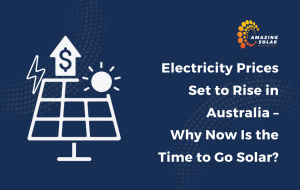When considering solar power for your home, understanding the technical terms and measurements associated with solar energy is crucial for making informed decisions. Two terms that often come up in discussions about solar systems are kW vs kVA. While these units may seem similar, they represent different aspects of electrical capacity and performance. In this comprehensive guide, we’ll dive into the differences between kW and kVA, what they mean for your solar system, and how they affect the energy efficiency of your home.
What is kW (Kilowatts)?
kW, or kilowatts, is a measure of real power in an electrical system. It refers to the actual amount of power that is being consumed or produced. In simpler terms, kW represents the usable power that your solar panels can generate. It’s the amount of energy that you can actually use to power your home appliances and devices.
Why is kW important for your solar system?
The capacity of a solar system is often measured in kW. For residential solar installations, a typical solar panel system might range from 3 kW to 10 kW or more, depending on the energy needs of your home. This figure is a direct indication of how much power your solar panels can produce under optimal sunlight conditions.
If you’re considering installing solar panels, understanding kW is essential for determining:
- Energy production: How much energy your system can produce over a given period.
- System size: How many panels are required to meet your energy needs.
- Potential savings: The more kW your system can generate, the more electricity you can potentially save or offset from your electricity bill.
What is kVA (Kilovolt-Amperes)?
kVA, or kilovolt-amperes, is a measure of apparent power. It represents the total power, both real and reactive, that flows through an electrical circuit. Unlike kW, kVA includes power that does not contribute directly to performing useful work but is necessary for maintaining the electrical system.
In simpler terms, kVA measures the total potential power of the system, including both the usable power (kW) and the power lost due to inefficiencies (reactive power).
Why is kVA Important?
kVA is often used in larger-scale electrical systems and industrial applications where power factors are a significant consideration. While residential solar systems generally focus on kW as the more relevant measurement for practical purposes, understanding kVA can still be useful, especially if you are interested in the overall capacity and performance of your electrical system.
Key differences between kW and kVA
To understand why kW vs kVA are important, let’s look at their key differences:
1. Definition of Power:
- kW is the real power consumed by the system.
- kVA is the apparent power that flows through the circuit, including both real and reactive power.
2. Power Factor:
- The power factor is the ratio of real power (kW) to apparent power (kVA) and is an essential metric in understanding energy efficiency. The power factor is expressed as a number between 0 and 1, with 1 being 100% efficient. In most residential solar systems, the power factor is close to 1.
- The formula for the power factor is: Power Factor=kWkVA\text{Power Factor} = \frac{\text{kW}}{\text{kVA}}Power Factor=kVAkW
3. Usage:
- kW is used to determine the capacity of your solar system and the amount of energy available for use.
- kVA is more commonly used in larger installations or industrial settings where the overall load, including any reactive power, needs to be considered.
How do kW and kVA affect your solar energy system?
Understanding kW and kVA can help you make informed decisions when choosing a solar power system for your home. Here’s how these units impact your solar energy efficiency:
- Efficiency and Savings: A solar system with a high kW rating is more efficient at converting sunlight into usable electricity. This directly influences how much you save on electricity bills.
- System Sizing: Choosing a system with the right kW capacity ensures that you have enough energy to power your home and reduce your reliance on the grid.
- Understanding Loads: If you’re considering installing additional electrical equipment that could affect your power factor, it’s helpful to know your system’s kVA to ensure you don’t overload the system.
The power factor and Its relevance in solar power
The power factor (PF) is a critical aspect to consider when assessing energy systems. While residential systems typically operate with a power factor close to 1 (indicating that most of the power being generated is being used effectively), commercial and industrial systems often have lower power factors due to the use of equipment that causes a phase shift between voltage and current.
For homes looking at solar energy, a power factor close to 1 means:
- Lower electrical losses: Most of the generated power is being utilised efficiently.
- Optimal energy use: Higher efficiency means more savings and reduced energy costs.
Why knowing the difference matters for homeowners
As a homeowner looking at installing solar panels, your focus should be on the kW rating of your solar system. This is the measure that will directly affect the amount of usable power your system can produce and, consequently, your savings.
However, understanding kVA can help you better grasp the total power capacity, especially if you are looking to expand your solar or electrical system in the future. This is useful for ensuring that your electrical setup can handle any changes in power requirements.
How to choose the right solar system for your home
When choosing a solar system, you should consider:
- Your average energy usage: Look at your power bills to determine how much energy you use monthly.
- Solar panel capacity: Determine the kW capacity needed to meet your energy needs.
- Energy storage: If you’re planning to include batteries, check their capacity in kW and kVA to match your power needs.
Consult with an experienced solar provider who can evaluate your home’s energy profile and recommend the best system tailored to your needs.
Final Thoughts
Understanding the difference between kW and kVA is essential for homeowners looking to install solar systems. While kW is the unit that matters most for assessing the performance and savings potential of your solar panels, knowing about kVA can be helpful for understanding your system’s overall power capacity.
If you’re ready to make the switch to solar and want to learn more about how these measurements impact your home’s energy efficiency, talk to our expert team at Amazing Solar today. We’ll help you navigate the complexities of solar energy and find the right system for your needs.
Get solar for your home — talk to our solar expert at Amazing Solar on 1300 025 955.
















